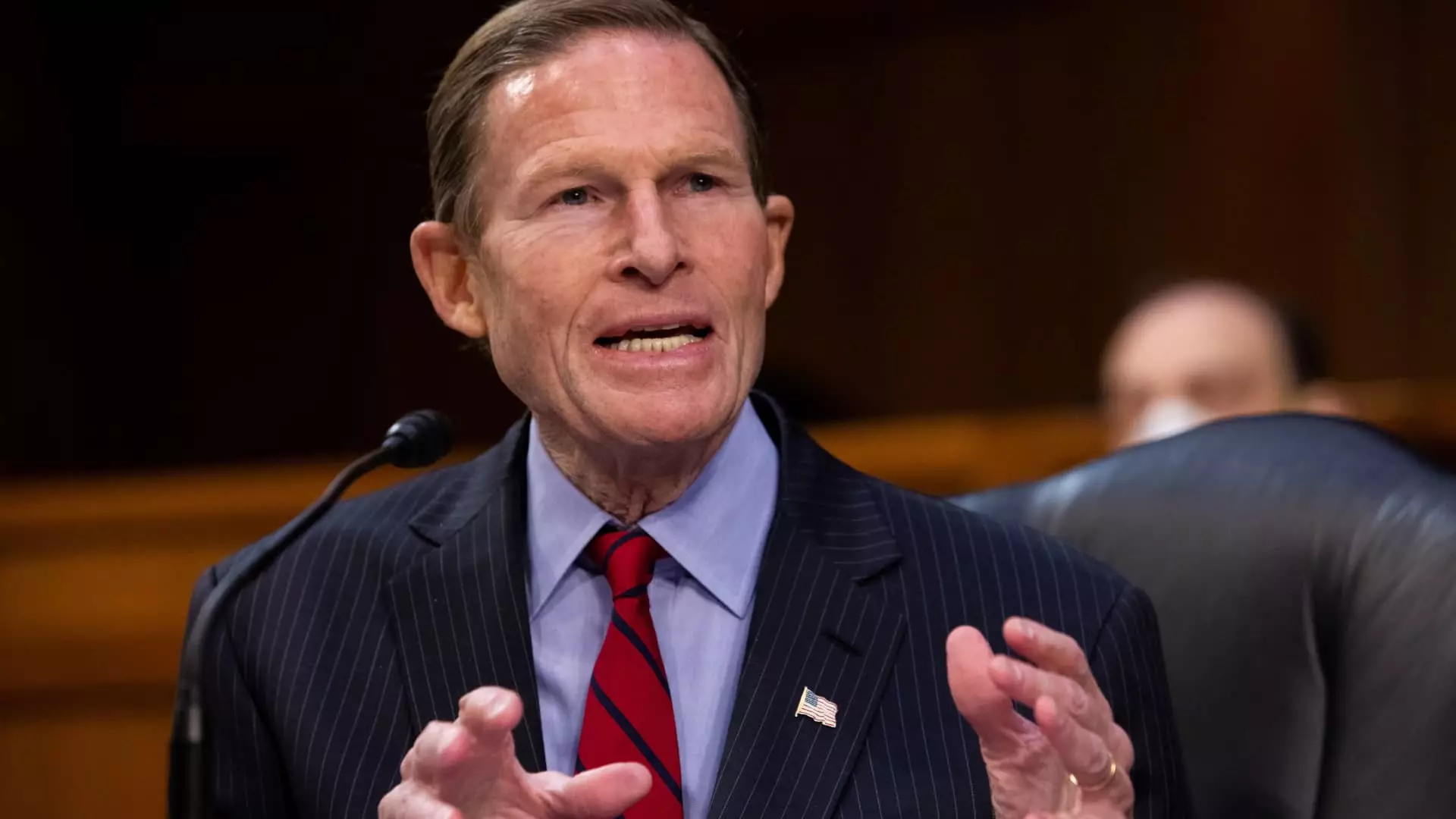Senator Richard Blumenthal’s recent challenge to Visa shines a light on the murky underpinnings of corporate relationships in an era dominated by celebrity entrepreneurs and tech moguls. By pressing Visa for comprehensive documentation about its forthcoming collaboration with Elon Musk’s X—formerly Twitter—Blumenthal has raised critical questions of ethical governance and accountability. This isn’t merely about a financial transaction; it’s a microcosm of how modern capitalism can, and often does, bend its moral compass in favor of profitability. The issues at stake are emblematic of a worrisome trend wherein corporations rush to associate themselves with figures like Musk, whose reputation is marred by questionable behavior and controversial decisions.
The Senator’s apprehensions extend beyond the technicalities of a business partnership; they delve into the essence of consumer protection, particularly regarding the establishment of “X Money,” a digital wallet initiative. Musk’s alleged dismantling of the Consumer Financial Protection Bureau (CFPB) raises red flags not only about regulatory oversight but also about potential conflicts of interest. The implications are clear: what happens when consumer financial protections are sacrificed at the altar of innovation and speed?
Conflict of Interest: A Central Concern
In his letter, Blumenthal wisely highlighted the intricate web of interests tied to Musk, who has not only reshaped social media but has also taken on a newfound role in government as the head of the Department of Government Efficiency. The juxtaposition of this authority with the financial provisions of X Money raises eyebrows. Can anyone truly feel safe knowing that a man who has consistently shown ambivalence toward regulatory frameworks is at the helm of a financial service? It creates a narrative where consumer interests may very well be an afterthought, overshadowed by the evangelical pursuit of innovation.
The notion that a social media platform with a history of facilitating bot-driven interactions and battling misinformation could transition into a reliable financial service is not just ambitious—it borders on reckless. Visa operates on the global stage as a financial giant, and its involvement here is a gamble that’s likely to land somewhere in between a disastrous misstep and a rushed venture fraught with complications.
The Dangers of Reckless Innovation
Particularly alarming is the prospect of a financial service launched by a platform infamous for “bots, scams, and hate speech.” As Blumenthal aptly noted, trust is paramount in financial services, and X’s history raises significant doubts about its capability to manage risks, including scams and financial crimes. The intersection of social media and financial transactions is uncharted territory, and entering this realm without robust consumer protections will serve to exacerbate existing vulnerabilities in the system.
Moreover, how does Visa’s partnership with X engage with financial crimes such as money laundering or terrorist financing? Blumenthal’s inquiry into Visa’s compliance strategies is a valid one, and it illustrates a larger concern: Are payment giants prepared to confront this new reality where their networks could be misused by unscrupulous actors? The stakes of this partnership are astronomical, and it is crucial that those at the top of these corporations are held accountable for the moral ramifications of their actions.
The Call for Transparency and Accountability
As this saga unfolds, the demand for transparency becomes ever more urgent. Blumenthal’s insistence on receiving detailed documents from Visa related to their business model and communication with X, the CFPB, and even cryptocurrency interests, reflects a necessary push towards corporate accountability. This proactive stance is essential in a climate where corporate integrity is often relegated to the sidelines. When the stakes involve consumer safety, scrutiny isn’t just warranted; it’s imperative.
In a world where the lines between technology and finance continue to blur, we must be vigilant and demand that corporations like Visa take their responsibilities seriously. If these institutions fail to prioritize ethical considerations over sheer market advantage, we risk creating a financial landscape that prioritizes profit at the expense of consumer trust and safety. The potential repercussions of a flawed financial partnership involving Elon Musk, a social media giant, and a credit card juggernaut are immense and can have long-term effects on consumers and the market alike.

